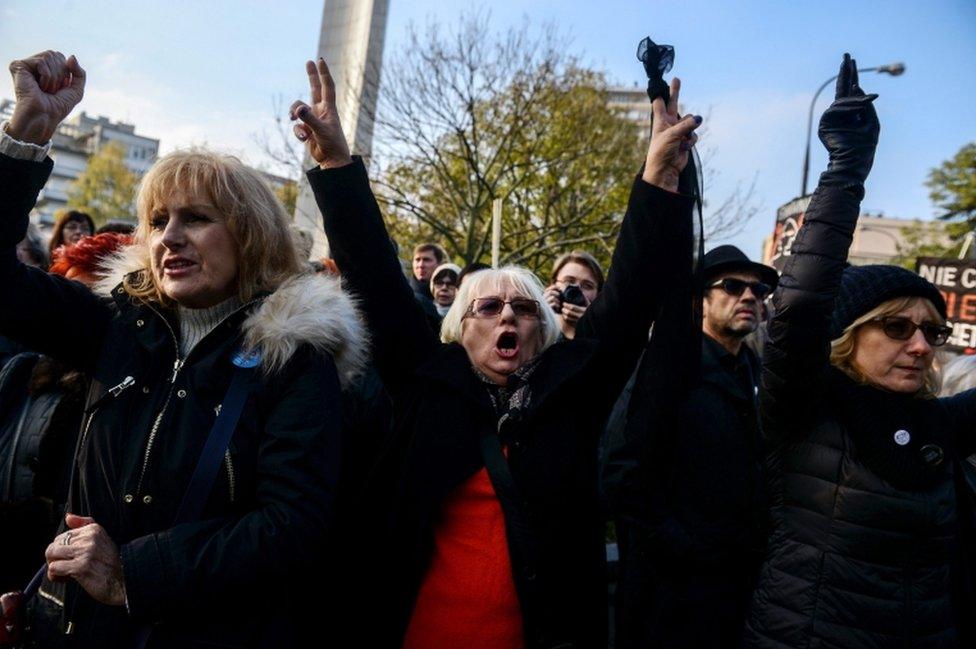Poland abortion: Fresh protests over planned restrictions
- Published

The protesters outside parliament reportedly chanted ``We have had enough!''
Polish protesters have launched fresh demonstrations against efforts to further tighten abortion laws.
Women's rights activists held a rally outside the parliament building in Warsaw, with more action expected on Monday.
Poland's MPs rejected a near-total ban on abortions on 6 October after mass protests against the move.
But there are new proposals to outlaw abortions in cases where foetuses are unviable or badly damaged.
Jaroslaw Kaczynski, leader of the governing Law and Justice Party (PiS), has said his socially conservative party is working on a new restrictive bill.
In an (in Polish), he said: "We will strive to ensure that even in pregnancies which are very difficult, when a child is sure to die, strongly deformed, women end up giving birth so that the child can be baptised, buried, and have a name."
Sunday's demonstration appeared smaller than previous rallies which attracted tens of thousands
The Catholic country already has among the tightest abortion laws in Europe. Currently the procedure is only permitted when there is severe and irreversible damage to the foetus, or a serious threat to the mother's health, or when pregnancy is the result of rape or incest.
The draft law that went before Poland's parliament earlier in October called for women who had abortions to be punished with a five-year prison term. Doctors found to have assisted in an abortion would have also been liable for jail time.
But it was defeated after nationwide "Black Monday" protests that saw tens of thousands of people dressed in black - most of them women - take to the streets.
Women also stayed away from work and school and refused to do domestic chores, in a protest inspired by a women's strike in Iceland in 1975.
Sunday's street protests are expected to continue on Monday, when some women are also planning another strike.
Activists warn that more restrictions on abortion would drive the practice further underground.
Estimates say there are already far more illegal abortions than legal ones in Poland - between 10,000 and 150,000, compared with about 1,000 or 2,000 legal terminations.
- Published6 October 2016
- Published3 October 2016
- Published5 October 2016